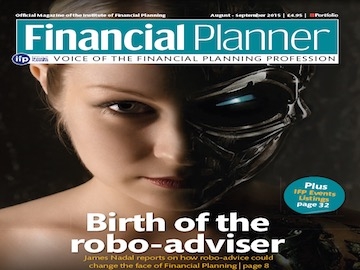Robo-advice could be a way to bridge the so-called advice gap, The Association of Professional Advisers has told the Government.
But the emerging technology is unable to provide Financial Planning, merely investment advice, APFA believes.
Increasing numbers of automated and online advice services have emerged over the last 18 months leading to the FCA and Treasury making it a focal point of the Financial Advice Market Review.
The probe, set to report back next year, has been examining if so called robo-advisers can improve consumers’ access to financial advice as part of a broader review of the sector.
Former FCA chief executive Martin Wheatley suggested could help solve the much-debated advice gap.
Responding to the FAMR, a report from APFA stated: “Many clients value the personalised face-to-face advice for financial planning where more complex analysis and human engagement and empathy are required.
“However, automated solutions are emerging and may help advisers be more productive. Robo-advice can be seen as a complementary tool to proper full face-to-face advice. It could be a way to bridge the affordability and accessibility gap. The two forms of advice do not have to be mutually exclusive.
“Robo-advice could cater for clients who otherwise would be uneconomical to serve and also allows firms to deal with volumes well above their capacity.”
APFA pointed to robo-advice’s capacity to adequately address a narrow and closed question, such as: “how should I invest my ISA allowance?” or “what is a good investment strategy for my pension?”.
But it also stressed they have failed to help with more open-ended questions like “what do I want to do with in retirement?” or “how much should I save?”.
APFA’s letter to the FCA and Treasury stated: “We expect them to be able to gauge this better with time. In that sense, they can provide investment advice but not Financial Planning. We believe they will be less effective at providing the “discipline” incentive of ensuring that money is saved rather than spent.”

